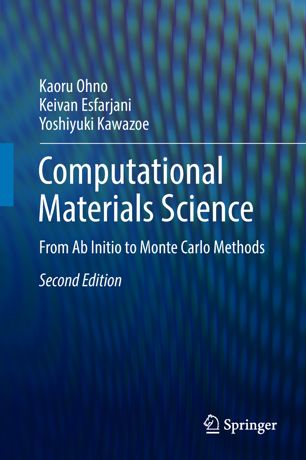

Most ebook files are in PDF format, so you can easily read them using various software such as Foxit Reader or directly on the Google Chrome browser.
Some ebook files are released by publishers in other formats such as .awz, .mobi, .epub, .fb2, etc. You may need to install specific software to read these formats on mobile/PC, such as Calibre.
Please read the tutorial at this link: https://ebookbell.com/faq
We offer FREE conversion to the popular formats you request; however, this may take some time. Therefore, right after payment, please email us, and we will try to provide the service as quickly as possible.
For some exceptional file formats or broken links (if any), please refrain from opening any disputes. Instead, email us first, and we will try to assist within a maximum of 6 hours.
EbookBell Team

4.3
38 reviewsThis textbook introduces modern techniques based on computer simulation to study materials science. It starts from first principles calculations enabling to calculate the physical and chemical properties by solving a many-body Schroedinger equation with Coulomb forces. For the exchange-correlation term, the local density approximation is usually applied. After the introduction of the first principles treatment, tight-binding and classical potential methods are briefly introduced to indicate how one can increase the number of atoms in the system. In the second half of the book, Monte Carlo simulation is discussed in detail. Problems and solutions are provided to facilitate understanding. Readers will gain sufficient knowledge to begin theoretical studies in modern materials research.
This second edition includes a lot of recent theoretical techniques in materials research. With the computers power now available, it is possible to use these numerical techniques to study various physical and chemical properties of complex materials from first principles. The new edition also covers empirical methods, such as tight-binding and molecular dynamics.